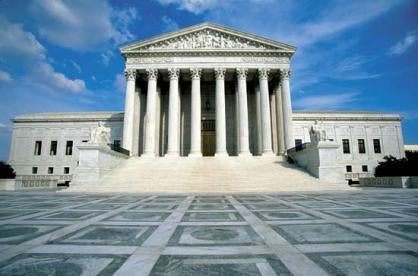On Dec. 9, 2014, U.S. Supreme Court issued a unanimous decision that the Fair Labor Standards Act (FLSA) does not require an employer to pay its employees for time spent undergoing security screenings at the end of their shifts. Justice Thomas wrote the Court’s opinion in Integrity Staffing Solutions, Inc. v. Busk, with Justice Sotomayor filing a concurring opinion which Justice Kagan joined. This case has been closely watched by business groups concerned with the potential of millions of dollars of back pay and liquidated damages.
In this case, Jesse Busk and Laurie Castro worked as hourly employees of Integrity Staffing Solutions, Inc., which, in turn, provided warehouse staffing to Amazon.com. Integrity Staffing required its employees, before leaving the warehouse each day, to undergo a security screening which involved passing through a metal detector and removing wallets, keys, and belts from their persons. The employees were not compensated for this time. Busk and Castro filed a putative class action against Integrity Staffing under the FLSA and Nevada labor laws, claiming they spent approximately twenty-five minutes each day waiting to undergo and actually undergoing these screenings.
Justice Thomas wrote that the FLSA, as amended by the Portal to Portal Act, did not require employers to compensate employees for “activities which are preliminary to or postliminary to [the] principal activity or activities.” The FLSA requires an employer to compensate an employee for an activity “if it is an intrinsic element of [the principal] activities and [is] one with which the employee cannot dispense if he is to perform his principal activities.” The Court concluded that the security checks did not meet this standard and dismissed the class action, reversing the judgment of the Ninth Circuit Court of Appeals.
Numerous other class actions are pending directly against Amazon.com, as well as other national drug stores and Apple, Inc., alleging similar claims as this case. This is the latest in a long line of cases where the Supreme Court has had to deal with the concept of compensability of preliminary and postliminary activities (i.e., donning and doffing of protective gear).
This case strengthens employers’ ability to avoid compensating hourly employees for certain activities that are preliminary or postliminary to their work. These compensation questions are fact-sensitive and employers should proceed cautiously before taking action.








 i
i

